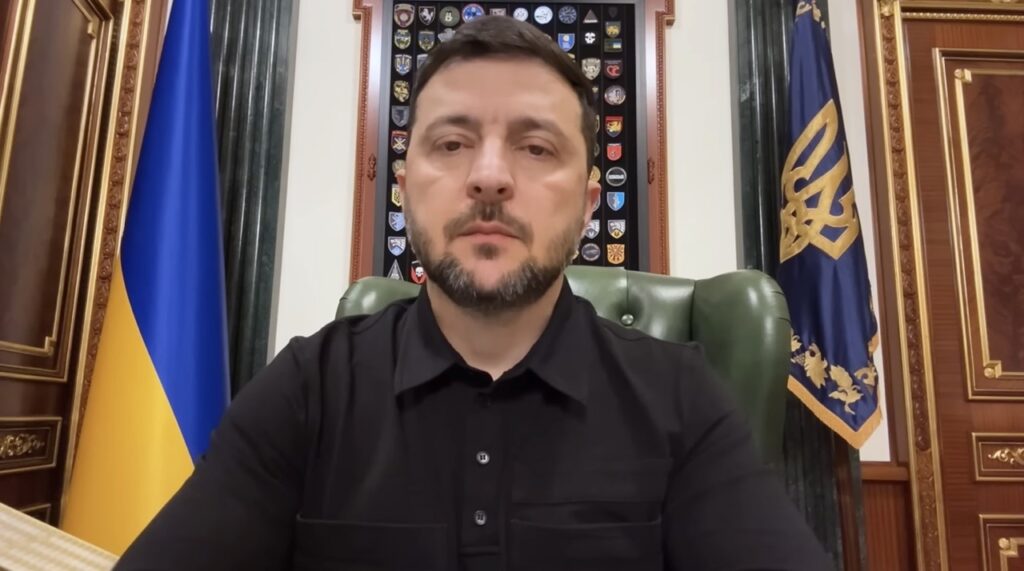Zelenskyy demands tougher sanctions as Russia’s oil revenues plunge 27%

Ukrainian President Volodymyr Zelenskyy announced on 9 November that Ukraine and EU partners are preparing the 20th sanctions package against Russia, expected within a month, as Moscow's oil revenues collapsed 27% year-on-year in October amid existing restrictions and falling crude prices.
The timing connects Ukraine's push for expanded sanctions with mounting evidence that economic pressure is beginning to crack Russia's war financing. Russia collected 888.6 billion rubles ($9.7 billion) in oil and gas taxes in October, down from the same month last year, according to Russia's Finance Ministry.
Ukraine's three-pronged sanctions proposal
Zelenskyy outlined specific targets for the 20th package in his evening address:
- Energy sector entities: Russian legal entities and individuals still profiting from energy resources despite existing restrictions
- Child abduction networks: Updated listings of Russians involved in forcibly deporting Ukrainian children to Russia
- Military supply chains: Companies and countries enabling Russia's weapons production through component exports
"Every Russian missile and every Russian drone contains specific components from other countries, specific countries – without them, there would simply be no Russian weapons," Zelenskyy said, directing Ukraine's Foreign Ministry to intensify work on cutting these supply lines.
Russian war chest shows cracks
The revenue collapse suggests sanctions are gaining traction. Russia's oil and gas revenues totaled 7.5 trillion rubles over the first 10 months of 2025, down 2 trillion from 9.54 trillion a year earlier. The decline accelerated from 14% in the first five months to 21% by October.
Multiple factors drove the drop: Russia's Urals crude averaged just $53.99 per barrel in October, below the government's $70 initial forecast and even its revised $56 target. Meanwhile, late October saw the US sanction Rosneft and Lukoil, Russia's two largest oil companies accounting for half of Russian crude exports—about 2.2 million barrels daily.
Around 70% of Russia's seaborne oil exports now face US restrictions. Analyst Vladimir Chernov of Freedom Finance Global estimates a 5-10% drop in Rosneft and Lukoil exports combined with wider discounts could cost Russia's state budget up to 120 billion rubles ($1.3 billion) monthly.
Moscow's budget scramble
Russia's Finance Ministry expects a 22% shortfall in hydrocarbon revenues for 2025, projecting just 8.6 trillion rubles against an initial 10.94 trillion target. The ministry sees no significant recovery through 2028, with oil and gas revenues projected at 8.9 trillion in 2026, 9 trillion in 2027, and 9.7 trillion in 2028—still 20%, 19%, and 13% below 2024 levels respectively.
To plug widening fiscal gaps expected to reach 5.7 trillion rubles this year and exceed 10 trillion over the next three years, Moscow plans sharp tax increases. Value-added tax rises to 22% starting next year, small business taxes jump significantly, and the Finance Ministry aims to raise 12 trillion rubles through new borrowing.
Ukraine tightens domestic enforcement
Ukraine also introduced new sanctions Saturday targeting Russian government officials, occupation administrators, propagandists, collaborators, and military-industrial complex workers. "Russia continues its war, and in response, there must be our strong pressure with partners – pressure that is truly tangible for Russia, that brings them losses and that is felt politically," Zelenskyy said.
The president emphasized that all Russian attempts to disrupt processes with the United States and Europe would receive sanctions responses, declaring: "Everything gets its own reaction, its own sanctions."
Read also: